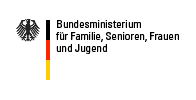Management feedback
Management feedback
Asking staff about the behavior of their superiors is hugely important as an additional source of information for staff and management development concepts. Upward evaluations such as management feedback encourage communication between the levels in the hierarchy and are thus an indispensable tool for learning organizations. They contribute to better understanding in the cooperation between management level and staff. So a gender-sensitive manner of proceeding is a must for management feedback, as it is only in this way that typical bias effects can be controlled.
Moreover, those involved are sensitized to the different ways women and men see things, which makes it possible to abolish stereotypical role attributions.
Evaluation of superiors is crucial to modern quality management concepts such as Total Quality Management (TQM), the EFQM model for excellence by the European Foundation for Quality Management (EFQM) or the Common Assessment Framework (CAF) for public administrative bodies or ISO 9000. Management feedback has been compulsory at least every two years in Berlin’s administration since the Law concerning Principles of Administrative Reform of May 1999.
Various procedural steps are needed for successful implementation, including
Moreover, those involved are sensitized to the different ways women and men see things, which makes it possible to abolish stereotypical role attributions.
Evaluation of superiors is crucial to modern quality management concepts such as Total Quality Management (TQM), the EFQM model for excellence by the European Foundation for Quality Management (EFQM) or the Common Assessment Framework (CAF) for public administrative bodies or ISO 9000. Management feedback has been compulsory at least every two years in Berlin’s administration since the Law concerning Principles of Administrative Reform of May 1999.
Various procedural steps are needed for successful implementation, including
- measuring management behavior for example by means of questionnaires and/or interviews on the basis of gender aspects
- feedback interview with management staff to discuss need for action with the incorporation of gender equality goals
- process of implementation with staff to change management behavior and cooperation
- evaluation of implementation and adjusting procedural steps if necessary.
Literature
- Klages, Helmut: Erfolgreich führen und motivieren! In: Personal und Personalmanagement in der modernen Verwaltung, Dunker&Humblot Berlin, 1998, S. 51-68
- Stahrenberg, Cora: Praxisbeispiel General Electric: Diversity-orientierte Beurteilung von Führungskräften; in: Krell: Chancengleichheit durch Personalpolitik. Gleichstellung von Frauen und Männern in Unternehmen und Verwaltungen, Gabler Wiesbaden, 2001, S. 45-50
Links:
- Innenministerium NRW: Leitfaden Führungskräftefeedback für die Beschäftigten des Innenministeriums
- Modul der TU-Berlin: Feedback für Führungskräfte
erstellt von Administrator
—
zuletzt verändert:
02.01.2010 20:07





